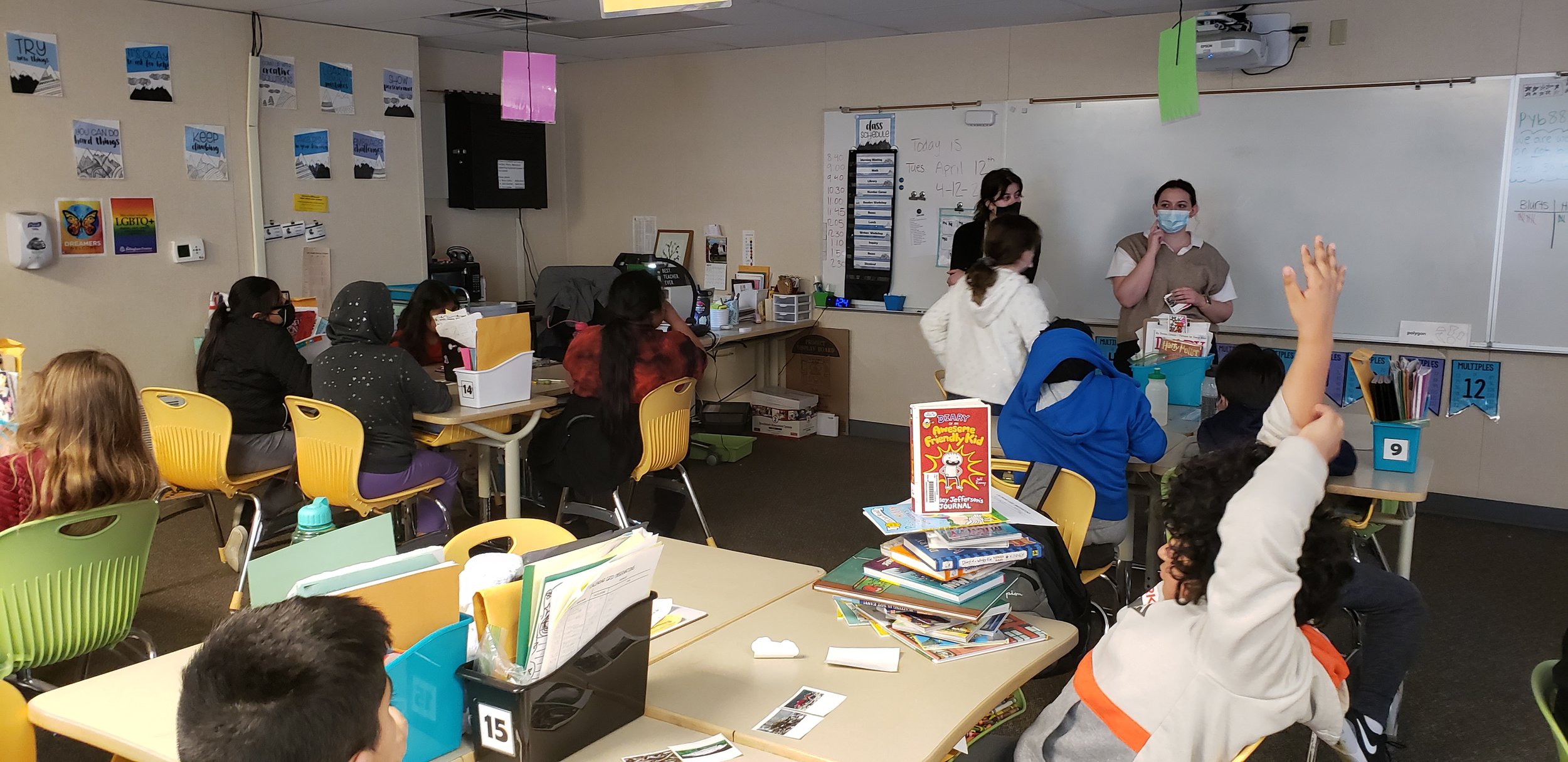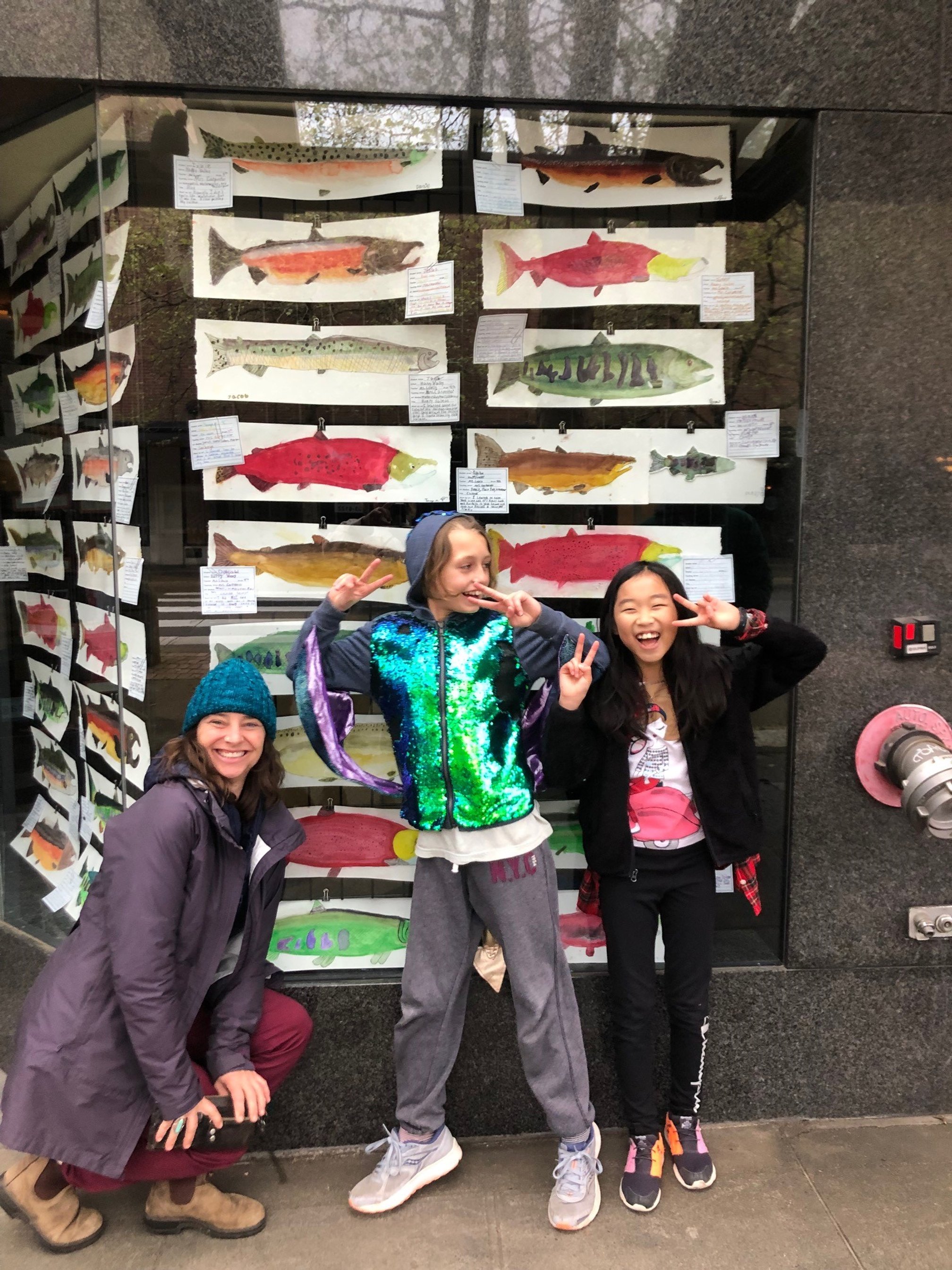Annually, NSEA’s Students for Salmon (SFS) Program serves over 1,000 fourth graders throughout Whatcom County. Students and their teachers meet NSEA staff in their classrooms and along salmon-bearing creeks to become “stream scientists” and participate in a stewardship project where they leave a positive impact on their local waterway. Partnered with these components of SFS is NSEA’s Students for Salmon Curriculum.
This suite of curriculum can be utilized by teachers in their classrooms to extend the learning beyond the NSEA-led components and bring the program full circle, leaving their students with a deeper knowledge of salmon, the threats they face in our region, and actions they can take to help salmon in their local watersheds. Recently, this curriculum was updated, thanks to a partnership through Western Washington University (WWU) with Dr. Debi Hanuscin and her pre-service teachers. Dr. Hanuscin and her students took NSEA’s existing SFS curriculum and revised it to ensure that it is locally relevant, includes Indigenous Ways of Knowing, builds in climate science, and integrates the power of youth voice.
We are excited to see how this updated curriculum can further connect students to their watersheds and salmon. NSEA and WWU recently presented at the Washington Science Teachers Association (WSTA) Conference and further broadened our impact by showcasing this curriculum to teachers and professionals from around the state. We will be hosting teacher professional development workshops over the next two school years to train teachers on utilizing this curriculum, setting them up for success and ensuring the curriculum will be used for years to come. These trainings were made possible because of funding from NOAA BWET, which will allow us to maximize this partnership with WWU and reach fourth grade teachers across Whatcom County.
The SFS curriculum wraps up with an activity where each class gets to choose a project to work on to share more broadly what they learned while participating in SFS and take action for the benefit of salmon. This culmination of each classroom’s SFS experience further supports NSEA’s value of the importance of hope in education and how this can empower students to take action in their lives to help salmon, which are so essential to the environment, culture, and economy of our region.
For more information about NSEA’s Education programs, please contact Nathan Zabel at nzabel@n-sea.org or call 360-715-0283.


